
The invisible primary: Can party elites pick a nominee before anyone votes?
Though his face isn’t visible, this 2007 picture shows then-Sen. Evan Bayh endorsing Hillary Clinton for president.
In March of 2014, the Republican presidential field looked like a mess. Gov. Chris Christie’s administration was mired in the Bridgegate scandal. Sen. Marco Rubio had lost popularity after backing immigration reform. Gov. Scott Walker faced his own tough reelection fight, and had never been tested on the national stage. And Sen. Rand Paul — a candidate unacceptable to many party insiders — was rising in polls and building a national network.
So party elites took action. On March 29, the Washington Post’s Philip Rucker and Robert Costa reported, “Many of the Republican Party’s most powerful insiders and financiers have begun a behind-the-scenes campaign to draft former Florida governor Jeb Bush into the 2016 presidential race.” The courting of Bush played out over the rest of the year — and finally culminated in Bush’s December announcement that he’d form a presidential exploratory committee, a signal to many that he was very likely to run.
GOP elites wanted a candidate, and now it looks like they may get him. This is an example of how the “invisible primary” can shape the nomination contest long before the voters have a say. And while we’re still a year out from the first real primaries, the invisible primary is, at this point, in full swing. Here’s what it is — and how you can follow it.
1) What is the invisible primary?
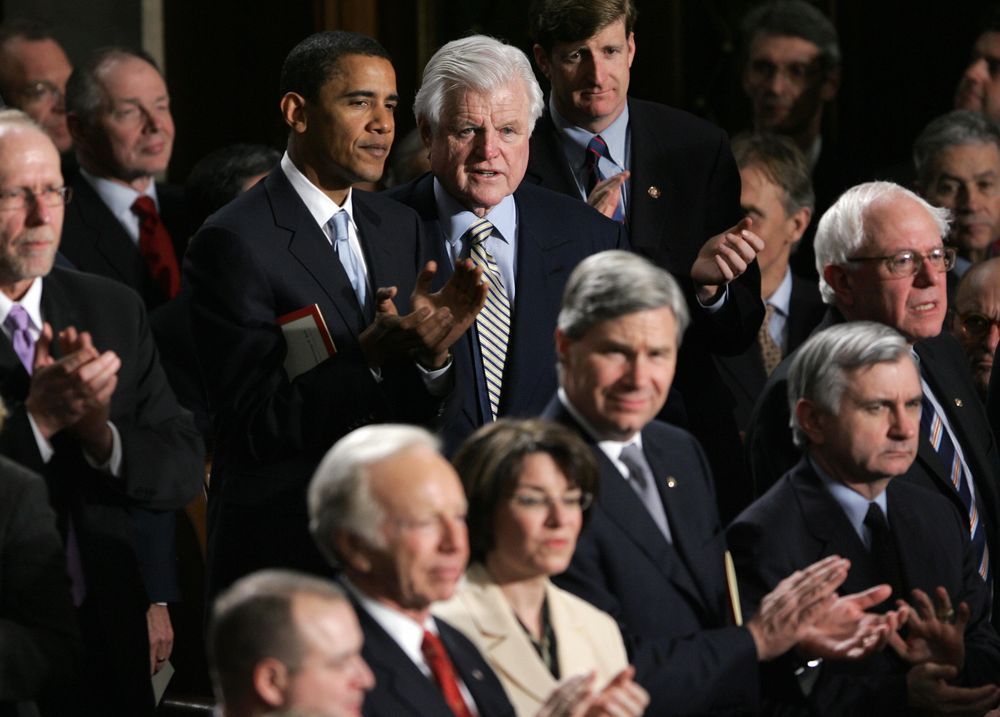
The term “invisible primary” refers to the attempts by important elements of each major party — mainly elites and interest groups — to anoint a presidential nominee before the voting even begins.
“The invisible primary is essentially a long-running national conversation among members of each party coalition about who can best unite the party and win the next presidential election,” political scientists Marty Cohen, David Karol, Hans Noel, and John Zaller write in The Party Decides, a 2008 book arguing for the centrality of the invisible primary in the nominations process.
Essentially, party insiders — elected officials, donors, interest groups, activists, and political staffers — are attempting to individually decide who they want their nominee to be, and often to coordinate with others in the party. These insider deliberations take place in private conversations with each other and with the potential candidates, and eventually in public declarations of who they’re choosing to endorse, donate to, or work for.
“These people who have a stake in the outcome aren’t going to just let it play out. They’re going to try to rig it in their favor,” says Noel, a Georgetown government professor.
2) Is the invisible primary a new phenomenon?
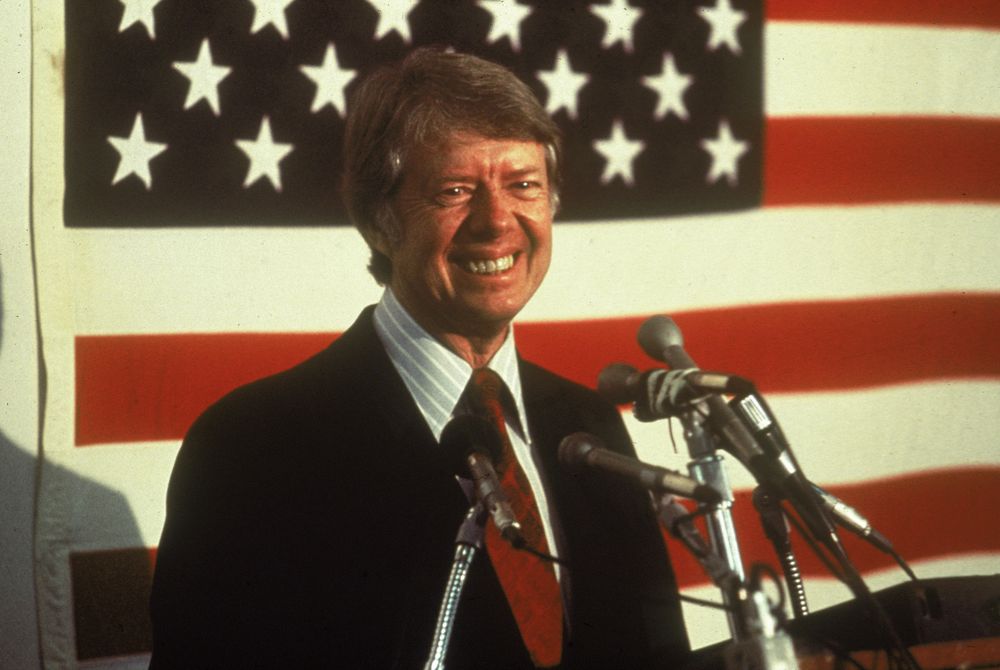
The term “invisible primary” has been in use at least since a 1976 book of that name by journalist Arthur Hadley. But it’s been fleshed out through the work of political scientists trying to understand the massive changes that have occurred in the parties’ nominating processes since the 1970s.
Throughout most of American history, the major parties determined their presidential nominees at conventions. Delegates around the country — many of their votes controlled by powerful political leaders or bosses — would converge in one location, and high-level negotiations would take place in various “smoke-filled rooms.” Eventually, the party insiders would reach a consensus on one ticket. The “voters” had quite little to do with their choice.
But after reforms in the 1970s, the vast majority of delegates were now awarded according to the results of statewide presidential primaries and caucuses. At first, the party elites appeared to have lost control over the process — as demonstrated when Jimmy Carter, a little-known one-term governor of Georgia, managed to win the 1976 Democratic nomination. It looked to many like Carter won by going over the heads of party insiders and taking his case straight to the voters. It seemed like the smoke-filled room was dead.
Over the next few decades, though, many establishment favorites have won nomination — raising the possibility that the nomination process is still closer to the old days than many think. So several political scientists have begun trying to analyze what happens during this invisible primary period. The authors of The Party Decides in particular argue that party insiders’ actions during this phase play a hugely important and often decisive role in determining the nominee.
3) What happens during the invisible primary?
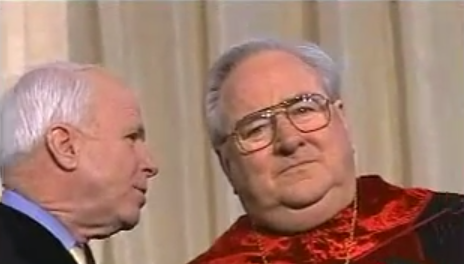
First things first: potential candidates have to decide whether to run or not run. “The people who would like to run meet others active in the party — donors, elected officials, other interest groups. They have private conversations, gauge support and see if there’s any interest in them running,” says Karol, a co-author of The Party Decides. And sometimes — as in the case of Jeb Bush — it’s the party insiders who are reaching out to a potential candidate, and urging him or her to run. These preliminary talks help guide potential candidates’ assessments about whether they have a path to victory, and therefore whether they should mount a non-invisible campaign.
Once candidates actually get in the race, there’s a more intense round of discussions among members of the party network about who their nominee should be. According to Noel, two main things are taken into account. “The first is, ‘Is this person someone who I like and want to be president?’ Ideology is a big part of this, but it’s also about whether a person is going to be loyal to the rest of the party.” Second is electability: “Can they win? Do they have what it takes to be appealing?”
Some party network members then start to endorse particular candidates. Most of these announcements dribble out in the year before the primaries actually begin. Declared candidates, after failing to win support and raise enough money, often drop out during this period. Once the field has been winnowed down somewhat, a frontrunner is sometimes — but not always — anointed by the party.
Then, the voters actually start going to the polls — but the effects of the invisible primary still persist. “The invisible primary puts constraints on what happens after the primaries and caucuses begin,” says John Sides, a political science professor at George Washington University. “A candidate can win an unexpected victory in an early state. But whether they can capitalize on that depends on how much support they’ve built up to that point.”
For instance, in 2012, Rick Santorum (very narrowly) won in the GOP Iowa caucuses, and Newt Gingrich won the South Carolina primary. But it was evident that neither candidate had enough support from the party network to sustain a broader, national campaign. “Who’s going to give you money? How are you going to do the campaign work you need to do to build on your success? Without any support of the party you’re not going to muster that,” Sides says. “I don’t think there’s any indication that a couple of rich guys and a Super PAC is enough.”
4) How do we know who is winning the invisible primary?
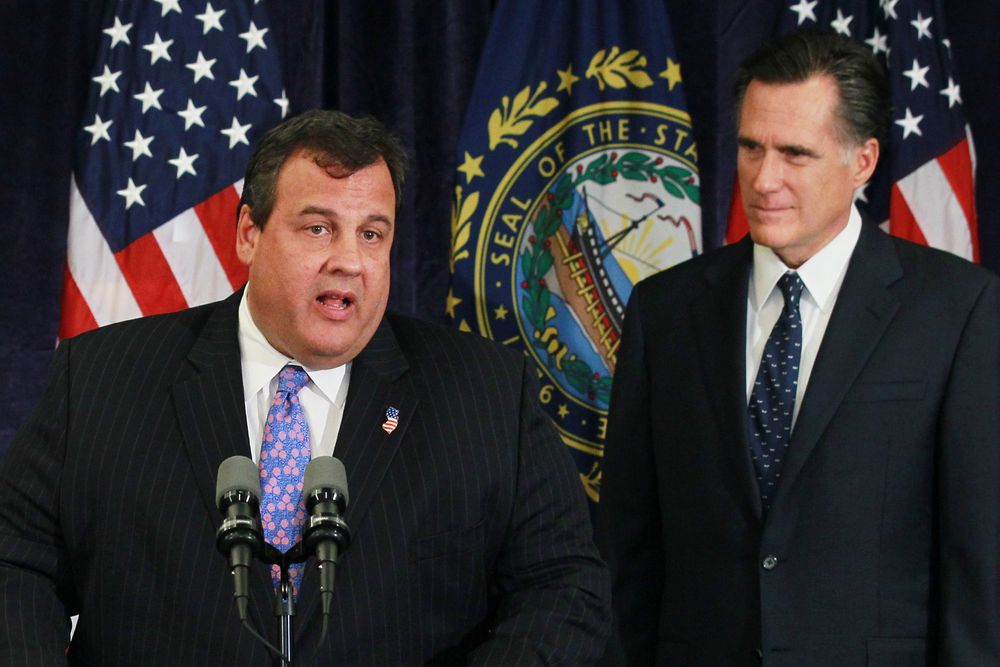
By nature, things that are invisible are difficult to watch. So the main data presented by the authors of The Party Decides focuses on the most visible aspect of the invisible primary — endorsements.
The authors amassed a ton of data on endorsements that occurred before the Iowa caucuses — from sitting governors, to former elected officials, to local officeholders and even celebrities — and weighted it by the importance each endorser seemed to hold in the party. In most of the competitive primaries starting in 1980, the authors found, one candidate had a clear advantage in these weighted pre-primary endorsements — and that candidate went on to win the nomination.
So, the authors argue, watch endorsements. They matter more than you probably think.
However, the authors aren’t saying that endorsements specifically cause a candidate to win. Rather, endorsements are a signifier of how the invisible primary is going — and therefore of which candidate the party network is choosing to favor. “In our theory, party insiders rally to the candidate of their choice, endowing him or her with endorsements, access to fund-raising networks, and pools of talent and volunteer labor,” they write.
This is in contrast to theories arguing that the causal arrow goes the other way — “candidate-centered” accounts arguing that inherently stronger contenders “attract endorsements, money, and volunteer talent.” So Dave Hopkins, a political science professor at Boston College, cautions that “we have to be careful about assuming that the endorsements are causally prior to the candidate demonstrating mass popularity. No one wants to endorse a candidate who can’t get mass popularity. There’s a cost to betting on the wrong horse.”
5) How often do party insiders get the nominee they want?
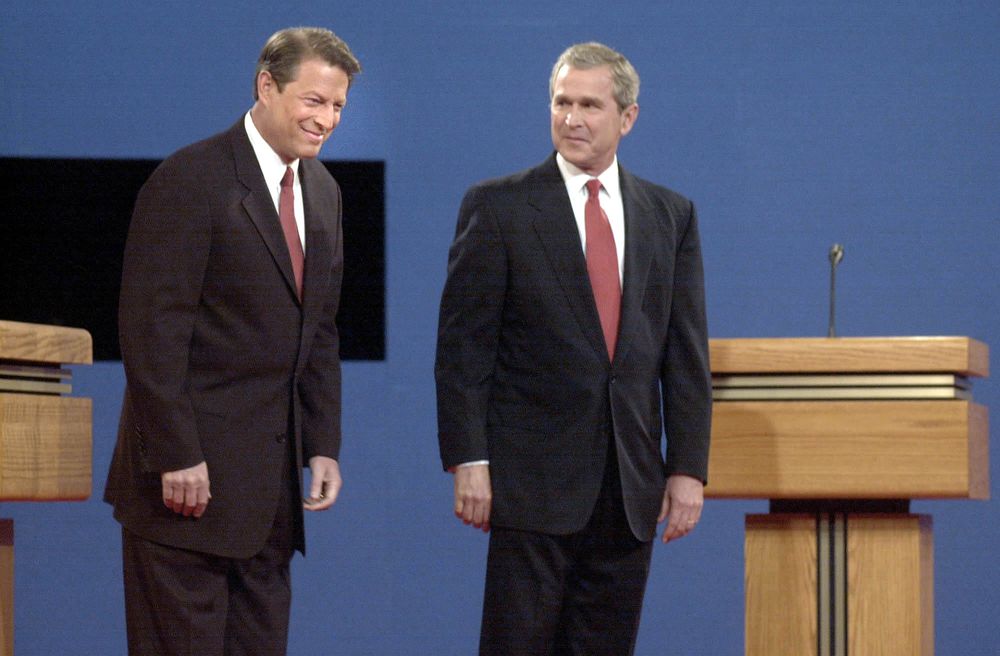
Not everyone agrees that the party’s influence is so decisive. “I think the Party Decides people have done a great job in highlighting the role of elite activity. And when they make the point that we’re not living in the ’70s anymore, that the elites have figured out the dynamics of the primary process much better than they initially had, I’m completely sympathetic to that,” says Hopkins, the Boston college professor. “But the nomination process is incredibly complex. And while the role of elites is an important one, but I don’t think it’s the only one.”
There have been 13 at least somewhat competitive presidential primaries since 1980. In 9 of those 13 contests, there has been one decisive winner of weighted pre-primary endorsements that has gone on to win the nomination. These are Reagan and Carter in 1980, Mondale in 1984, George HW Bush in 1988, Bill Clinton in 1992, Bob Dole in 1996, Al Gore and George W. Bush in 2000, and Mitt Romney in 2012.
So, by the Party Decides authors’ own metric, there are 4 recent cases where the party did not successfully anoint one candidate as the nominee — Dukakis in 1988, Kerry in 2004, and McCain and Obama in 2008. Indeed, only once in the past four competitive primaries has there been a decisive endorsement winner who then won the nomination (Romney in 2012).
Karol, one of the co-authors of the Party Decides, emphasizes that Kerry and McCain were in fact considered frontrunners in the earliest media coverage, before the endorsements started going out. Still, he expresses some doubt about how effectively each party can pull the strings. “My skepticism is, how good are party elites at coordinating? I think the cases where the party has coordinated on a candidate during the invisible primary, it’s always been somebody fairly obvious,” he says. For instance, they’ve thrown their support behind a current or former vice president (Mondale, George HW Bush, Gore), a close relative of a former president (George W. Bush, Hillary Clinton), or the runner-up in the previous competitive contest (Reagan, Dole, Romney).
There was one time when the party did appear to successfully coordinate on a non-obvious choice — Bill Clinton in 1992. “Clinton did emerge during the invisible primary period and was clearly ahead of the other people in endorsements, though he didn’t get the kind of wall to wall support Gore or George W. Bush had in 2000,” Karol says. But overall, it seems party elites may be better at stopping an unacceptable candidate than anointing one acceptable one among several.
6) Tell me more about some of the exceptions.
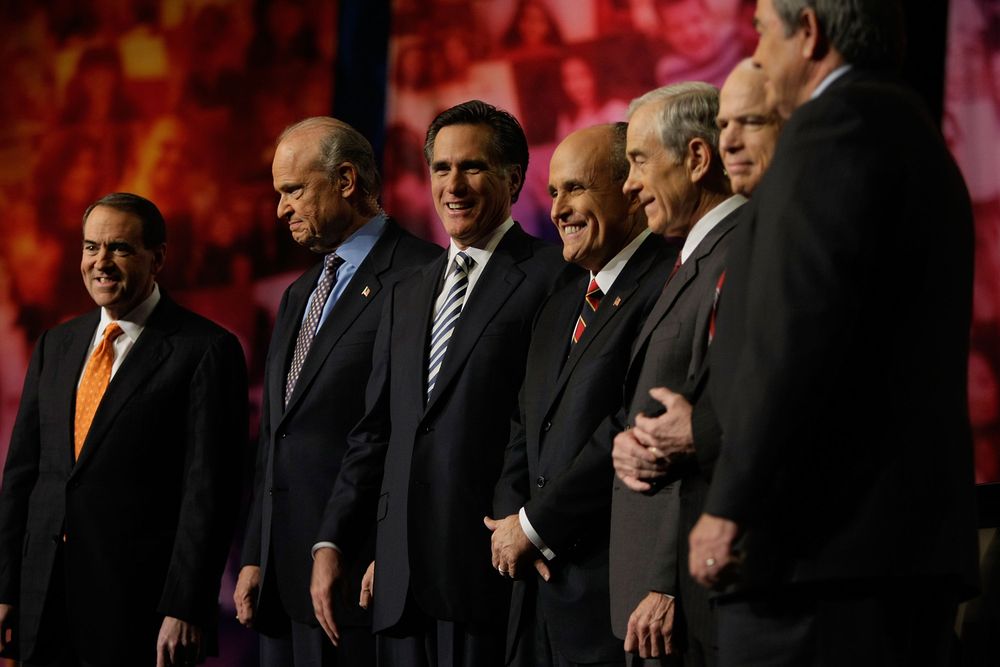
- 1988: For the Democrats, endorsements were split, with just a narrow plurality going to eventual nominee Michael Dukakis.
- 2004: For the Democrats again, John Kerry was third in endorsements according to the authors’ metric, trailing both Dick Gephardt and Howard Dean — there was no clear favorite.
- 2008: For the Democrats, Hillary Clinton clearly won pre-primary endorsements and lost the nomination. For the Republicans, endorsements were split between John McCain, Rudy Giuliani, Mitt Romney, and Fred Thompson — McCain seems to have held a narrow edge, but there was no decisive favorite.
The authors viewed McCain’s win in 2008 as particularly ill-fitting with their theory — Karol says it’s “the worst case for us.” Before the primaries began, there was no party consensus candidate. “Romney had a late conversion to social conservatism and his religion was an issue, Giuliani was not a social conservative, and McCain wasn’t seen as a reliable party man,” says Karol. “There was a demand for someone else.”
This yearning for an orthodox and party-loyal conservative led former Senator Fred Thompson to make a much-hyped entry into the race in September 2007. The Party Decides authors, who were putting the finishing touches on their book, were thrilled. According to Karol, one co-author jokingly emailed to the others that if Thompson got the nomination, their book would win the Nobel Prize.
But once Thompson entered the race, he performed unimpressively on the trail and his lead in national polls vanished. And after Mike Huckabee won the Iowa caucuses, John McCain effectively became the de facto Republican establishment pick by winning New Hampshire, South Carolina, and Florida — because of actual early state outcomes, not backroom conversations with party insiders. “I think in 2008, lots of Republican elites wouldn’t have minded if Romney got the nomination instead of McCain, but they didn’t care that much,” Hopkins says. “But in that case, did the party really decide?”
“The best part of the McCain story for us is what he did between 2003 and 2008,” says Karol. “The party supported Bush and not McCain in 2000 because he wasn’t entirely predictable, wasn’t a reliable party man. And then, early in Bush’s first term, McCain was very much a troublemaker from the standpoint of the Republican Party. But at a certain point, he decided he could run again in 2008, and decided to get back into the good graces of the party, and did all these things that his admirers kinda cringed at. He went to Falwell’s university” — Liberty University, where McCain delivered a commencement address in 2006 — “and accepted an honorary degree after he had called him an ‘agent of intolerance.’ Went around saying ‘look, I’m really a good boy, really a team player.’ He recognized he had to change his ways, and he did.”
So McCain made himself into an acceptable nominee for the party. Still, he seems to have won the nomination because of his electoral strength as demonstrated in visible primaries, not the invisible one. “This is social science. We don’t have laws. We make generalizations, we try to identify mechanisms, but nothing is 100 percent,” Karol says. “Individuals matter.”
7) What’s going on in the invisible primary for 2016?
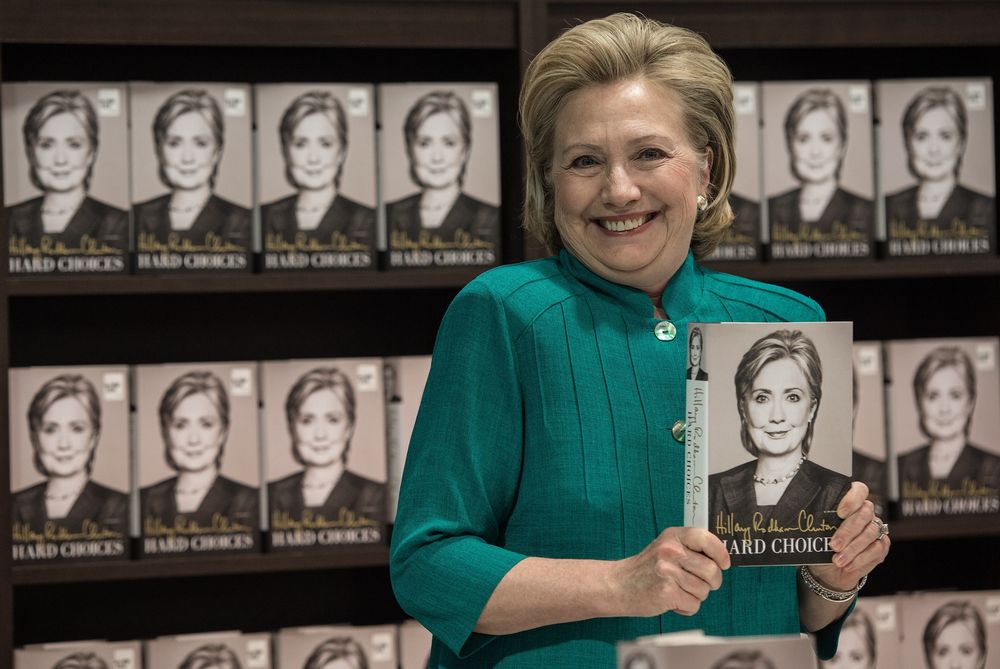
For the Democrats, Clinton is clearly winning the invisible primary at this point. “Hillary has basically almost been nominated,” Karol says, though he admits that’s “a dangerous statement to make.” Hopkins frames the key question as whether there’s any important enough group in the Democratic Party network — of elites, activists, or base voters — “who are not okay with her just winning.” If there is such a group of people, he says, they’ll still face the problem of finding and coordinating on an alternative. “But it may just be that the party in general is at least willing to tolerate her as the nominee, and is not willing to put blood, sweat, and tears into stopping her. If that’s the case, then that’s that.”
The GOP’s situation is much more unsettled. These recent examples show that, despite the attempts of some to anoint Jeb Bush, it’s not at all a sure thing that just one insider favorite will emerge — and, if so, that that favorite will win the nomination. “The Republican field, though, they have a lot of time to have this discussion, and to learn about these people,” Karol says.
There’s also the question of whether the world is changing in ways that undermine the theory. In our modern wired media environment, increasingly plugged-in voters could conceivably weaken the power of party insiders, and give candidates without elite support a boost. “There’s Fox News now, which didn’t exist,” Karol says. “There’s the internet, which didn’t really exist. Now, Herman Cain wins a straw poll in Florida, and he gets a ton of national media attention. Gingrich explodes for months on those debates.”
“But,” he adds, “none of those people won.”
(From The. VOX)

